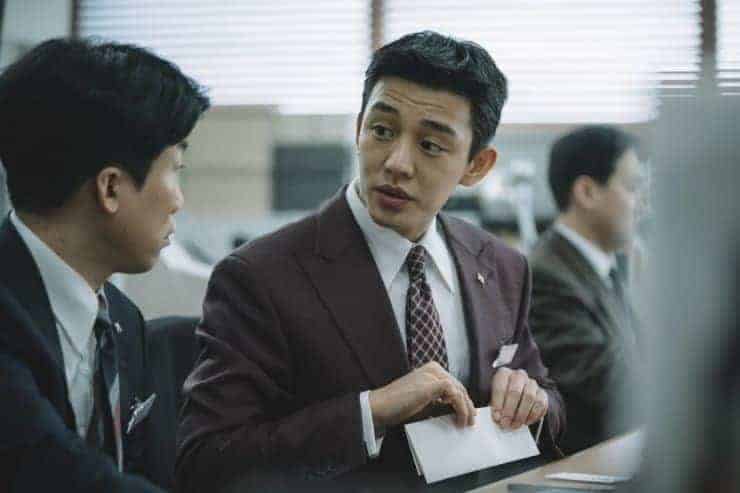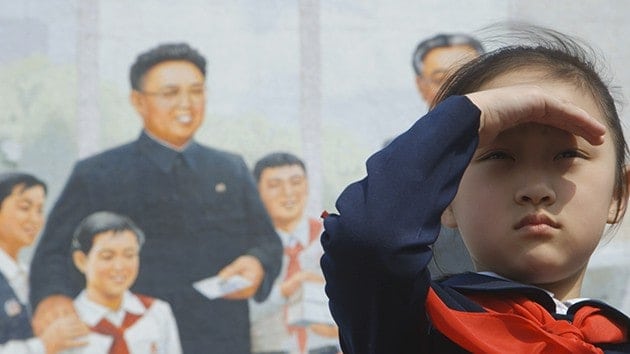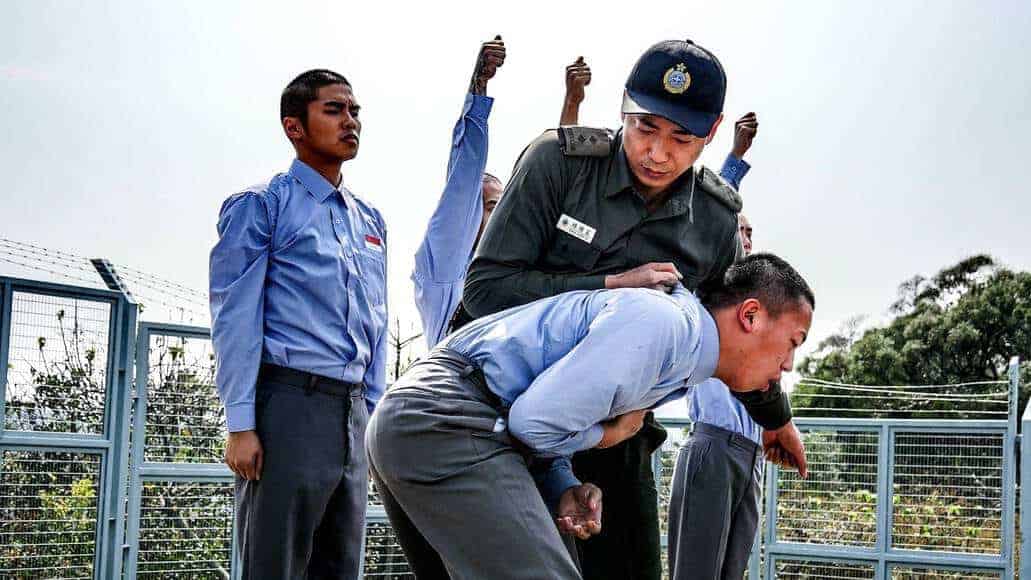For every developing economy that sees a swift and vast expansion, there comes a moment that eventually sees the bubble burst. For a majority of East Asian countries, that moment came with the 1997 Asian Financial Crisis, where one of the worst hit countries at the time was South Korea. Director Choi Kook-hee's sophomore feature “Default” aims to take a look at what went on behind the scenes as the government tread those slippery slopes while also depicting how the crisis affected the common people.
“Default” will be the next Teaser Screening for the London Korean Film Festival 2019
The film relies on three parallel storylines to explain the crisis, its cause and effect. The first is that of Han Si-hyeon, an analyst at the Bank of Korea who can see the oncoming disaster clear as day, as the nation uses its foreign currency reserves to keep the Dollar-to-Won exchange rate falsely steady. In spite of her repeated reports, her superior only reads them when it's too late and national bankruptcy is forecast to be but a week away. As the only person who seems to know what needs to be done to mitigate the effects of the crisis, she and her team become a part of a task force, along with top financial ministers in the government who would much rather protect their self-interests and that of large conglomerates and make politically-charged decisions rather than ones that could actually help the common public when disaster hits. As their plans fail to stop the onslaught or indeed lessen its effect, the ministers decide to seek a bailout from the IMF against Han's expressed concerns.

The second story is that of Gap-soo, a small-time factory owner who, along with his partner, decides to supply the bowls they manufacture to a large supermarket chain. In spite of his reservations, Gap-soo eventually agrees to the buyer's condition of accepting payment in the form of bank promissory notes that were in large circulation at the time. In an economy where even the top 150 companies of the country are slowly going bankrupt, the supermarket chain eventually goes belly-up, leaving a lot of suppliers like Gap-soo in the lurch, the promissory notes issued by them amounting to mere useless pieces of paper. The final character is that of Yoon Jeong-hak, an investment banker who, like Han Si-hyeon, accurately predicts the crisis and the government's actions. Leaving his job at the bank, he calls upon his clients to trust in him as he uses their money to bet against the Korean economy.
Through the three storylines, writer Umh Sang-min's script does a well-rounded analysis of the cause of the crisis and the domino effect it had on the overall economy as well as on the lives of the public. While the cause is well-explained via both Han's storyline as well as an impassioned pitch by Yoon to his investors, the effects of the actions are expertly portrayed through Gap-soo's predicaments. For the uninitiated, all the swift dispensation of information and financial jargon might seem overwhelming, but it all eventually plays out for the audience to understand easily as the film goes on. The film is paced as a financial thriller and, complemented by Choi Chan-min's drab cinematography, Kim Tae-sung's thrilling music and Shin Min-kyun's strict editing, succeeds in keeping the audience hooked, almost feeling like a disaster movie at times. There are some elements of melodrama thrown in for good measure which might not sit well with a section of the audience, but they mercifully do not hamper the pace of the film.

Kim Hye-soo really gets to sink her teeth into the character of Han Si-hyeon, upon whom most of the film focuses. In fact, some of the best scenes in the film come during the IMF negotiations, as she calls out the IMF Managing Director for doing the USA's bidding and stands up to him, who is played to intense dislike by French superstar Vincent Cassel. As Gap-soo, Heo Joon-ho is the heart of the film and manages to successfully gain the audience's sympathies. Coming off a career-high performance in Lee Chang-dong's “Burning”, Yoo Ah-in slightly disappoints here, though he's used sparingly. His biggest scene is his impassioned explanation of the economic situation and his predictions to his investors, but is weirdly played quite animatedly, coming across more as a con-artist's scene to the audience than a genuine investment opportunity. The most fun character to watch, however, is the cocksure, misogynistic Deputy Minister of Finance, played by Jo Woo-jin, who brings new life into scenes as soon as the camera turns to him.
The irony of how the public that the government was so desperate to keep in the dark eventually were responsible for getting them out of the mess, which is mentioned in the footnotes, will not go unnoticed. The short epilogue shows our characters 20 years on, as Han looks on from the brink of yet another bubble ready to burst, showing how the ripples of the 1997 Asian Crisis are felt even in today's economy in the country, making “Default” a very relevant film to the times.















